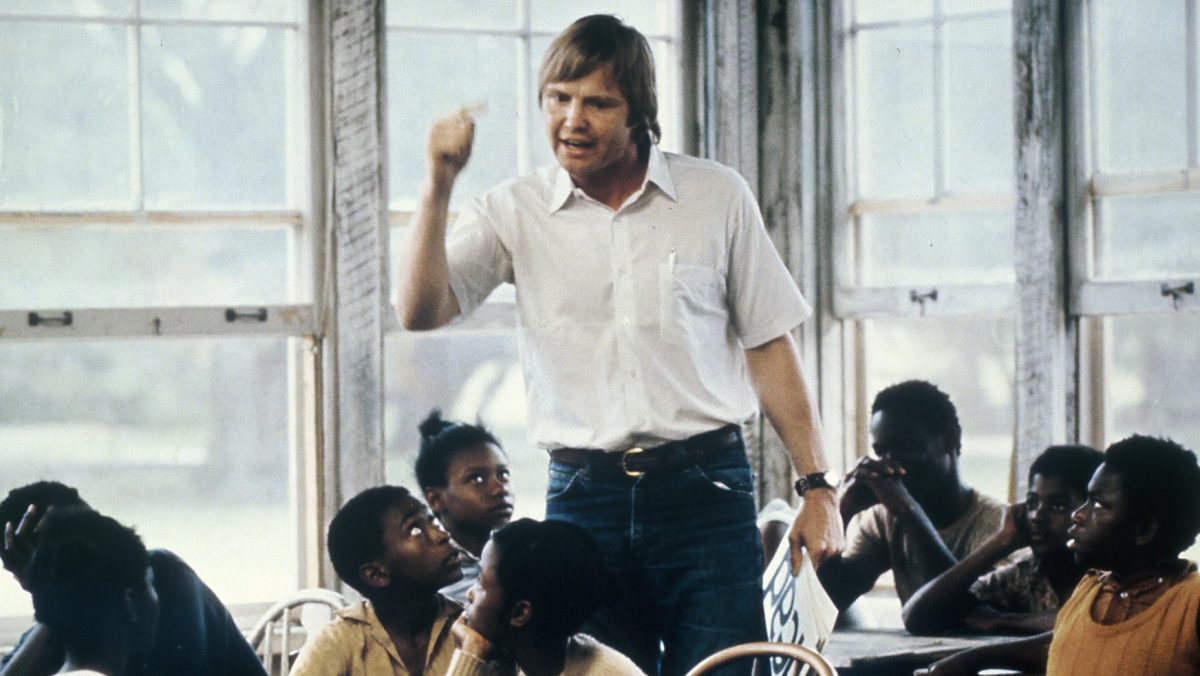
Conrack (1974) – Review by Pauline Kael
The true story of Pat Conroy, an idealistic beautiful white teacher who is a grade-school instructor for a group of poor black children in an isolated school.

The true story of Pat Conroy, an idealistic beautiful white teacher who is a grade-school instructor for a group of poor black children in an isolated school.
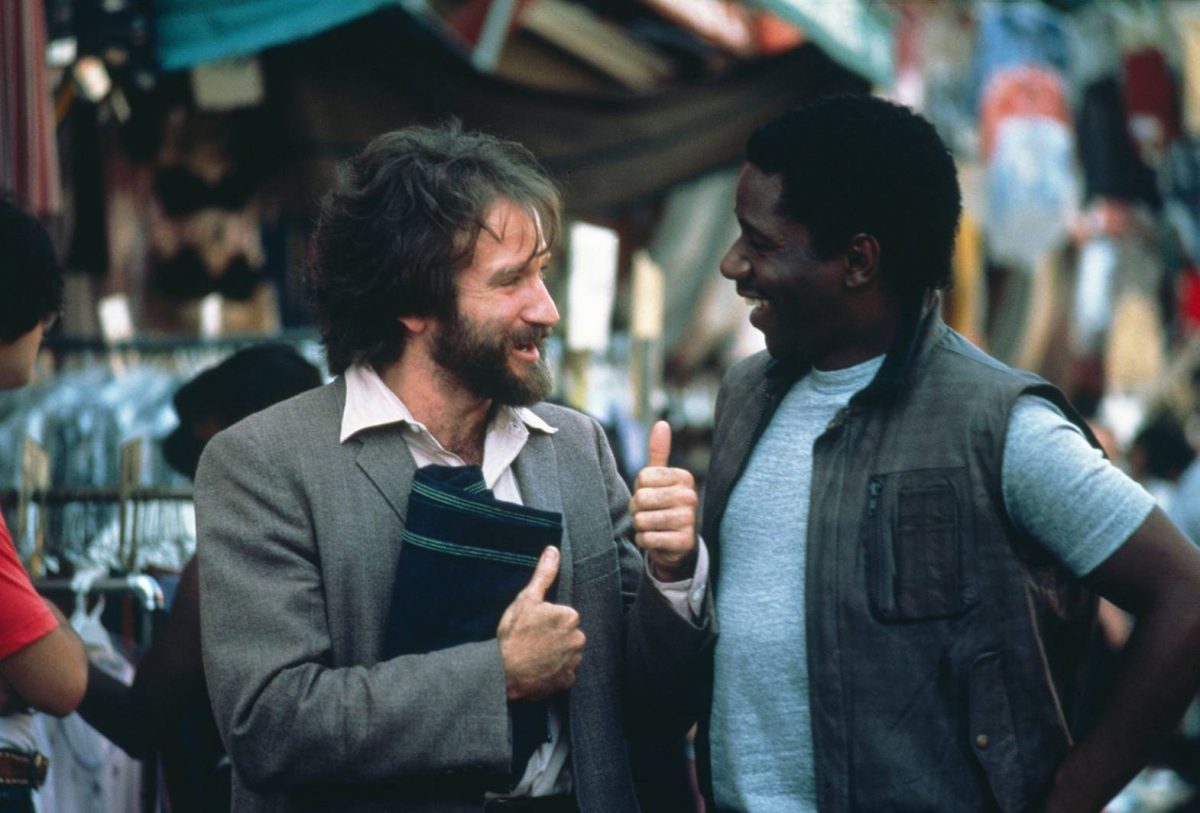
This is a movie in which you are expected to understand the hero when he tries to explain the difference between being unhappy in New York and in his homeland. “In Russia,” he says, “I did not love my life but I loved my misery, because it was mine.”
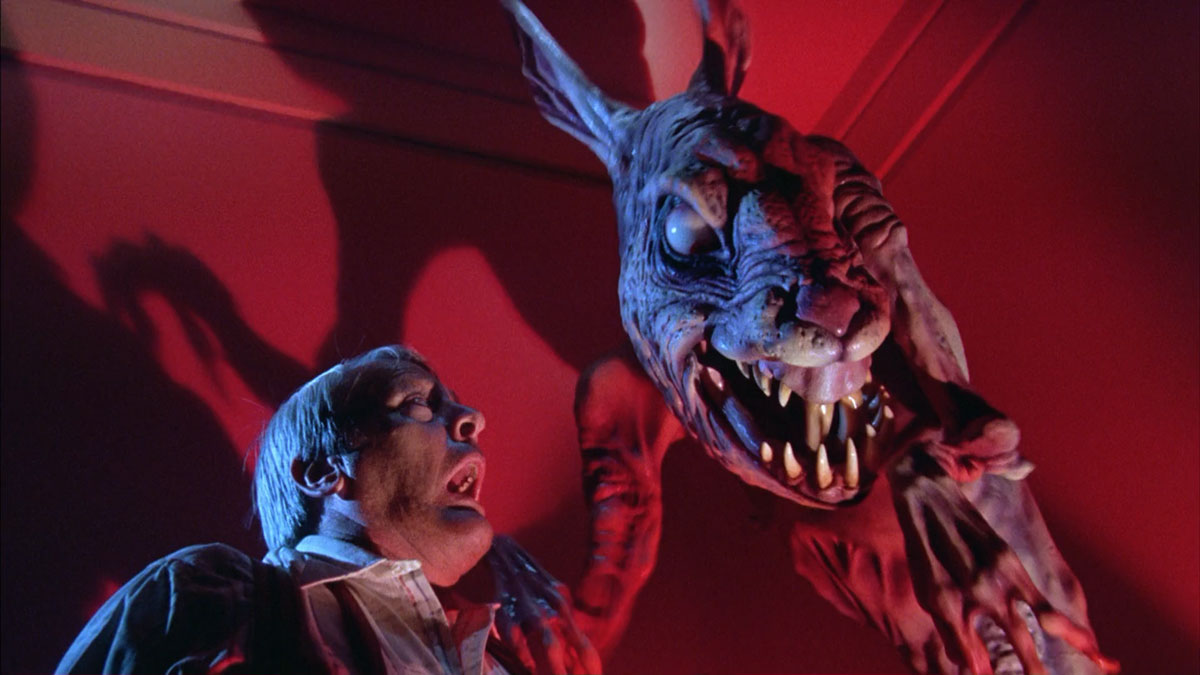
I didn’t expect (or want) Twilight Zone—The Movie to be Borgesian, but I did rather hope that John Landis, Steven Spielberg, Joe Dante, and George Miller—the four young directors who are paying homage to the TV series—would tease us with more artful macabre games than the ones of the old shows.
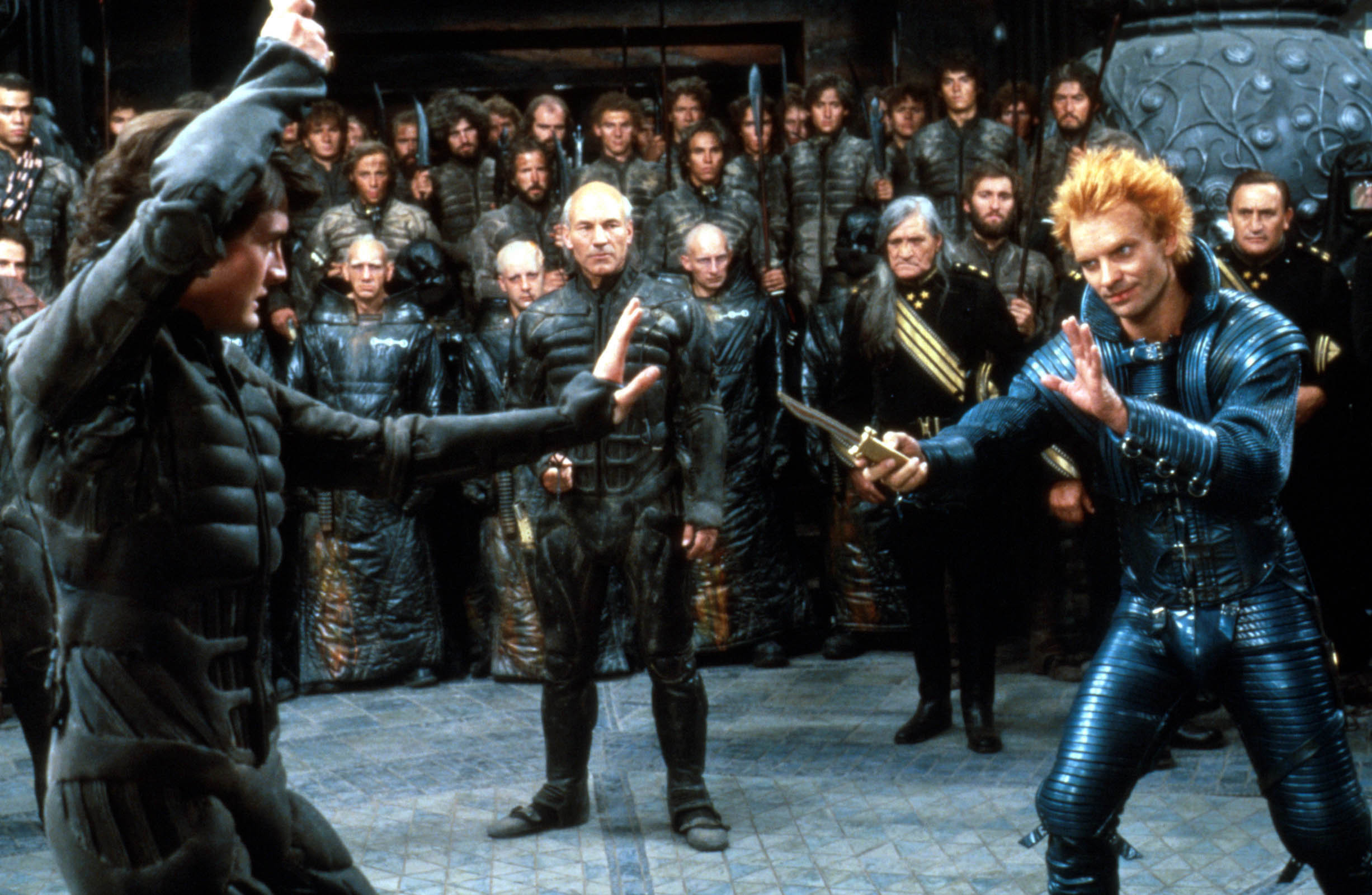
Lynch doesn’t bring a fresh conception to the material; he doesn’t make the story his own. Rather, he tries to apply his talents to Herbert’s conception.
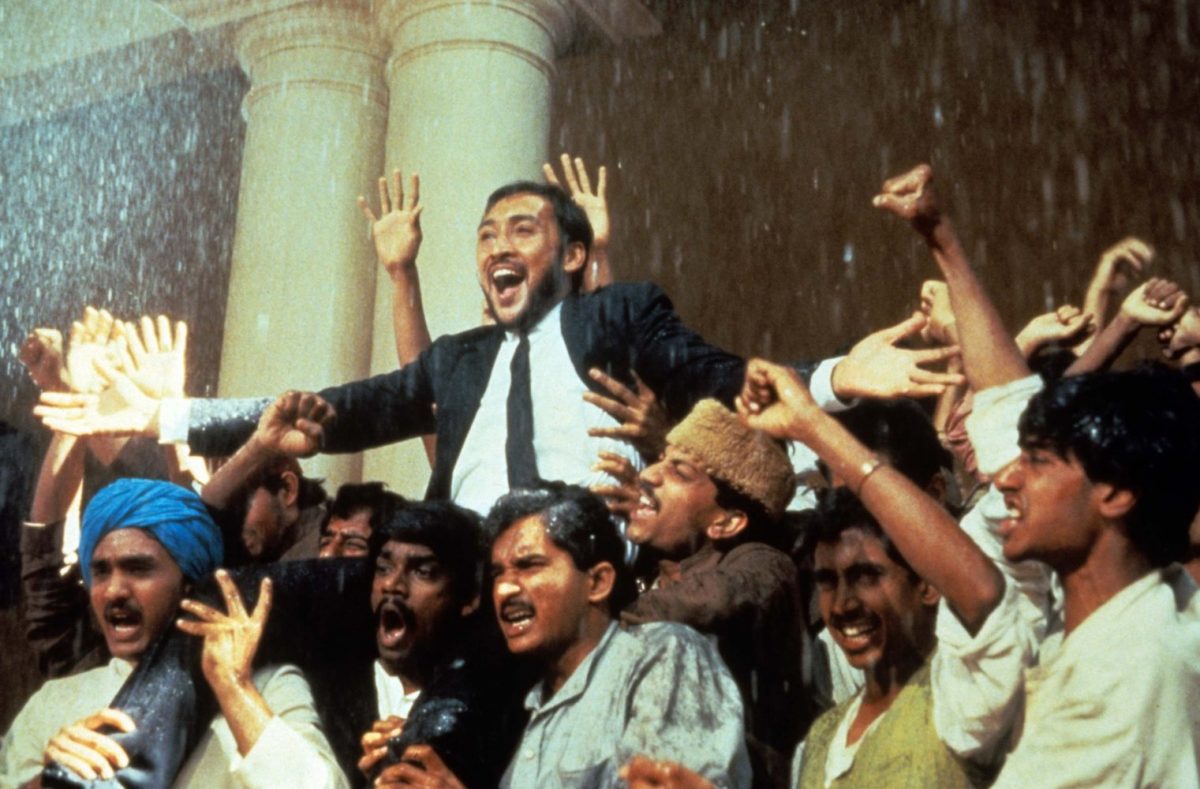
The movie version, adapted, directed, and edited by David Lean, is an admirable piece of work. Lean doesn’t get in over his head by trying for the full range of the book’s mysticism, but Forster got to him.
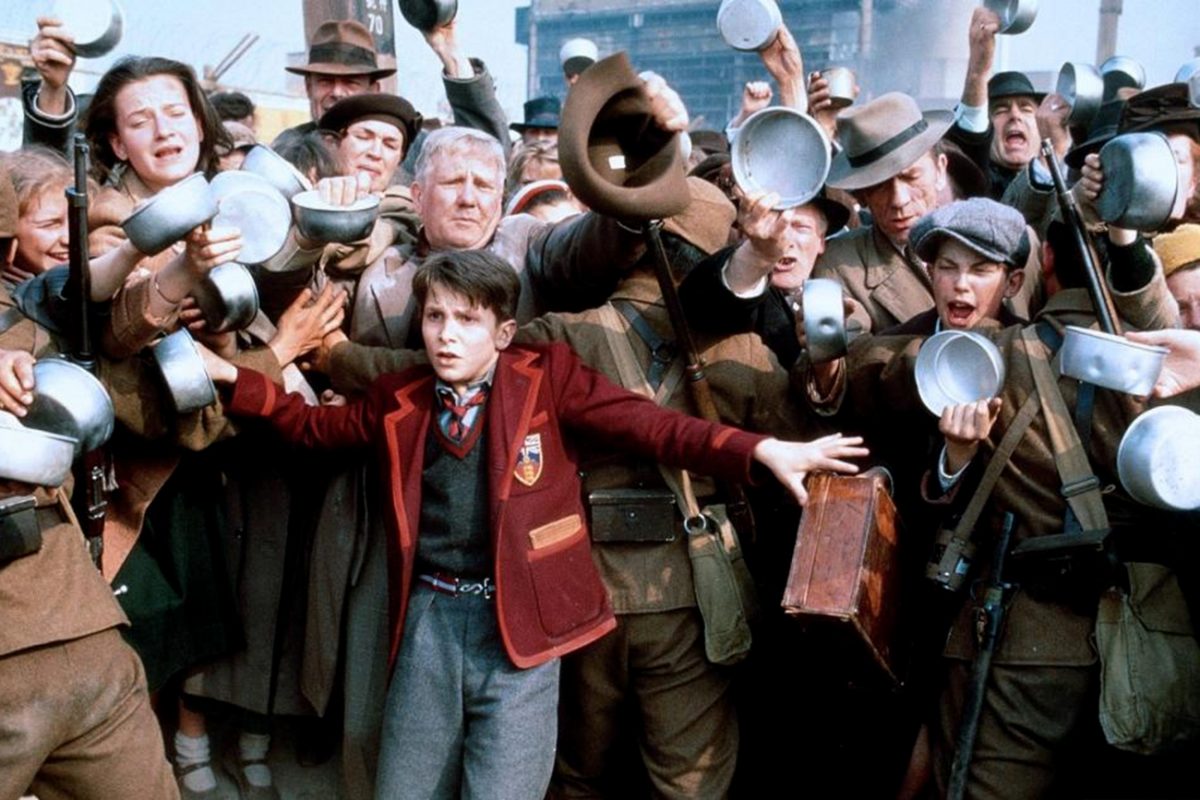
Empire of the Sun begins majestically and stays strong for perhaps forty-five minutes. It’s so gorgeously big you want to laugh in pleasure. Steven Spielberg takes over Shanghai and makes it his city. And then, first in brief patches and then in longer ones, his directing goes terribly wrong.
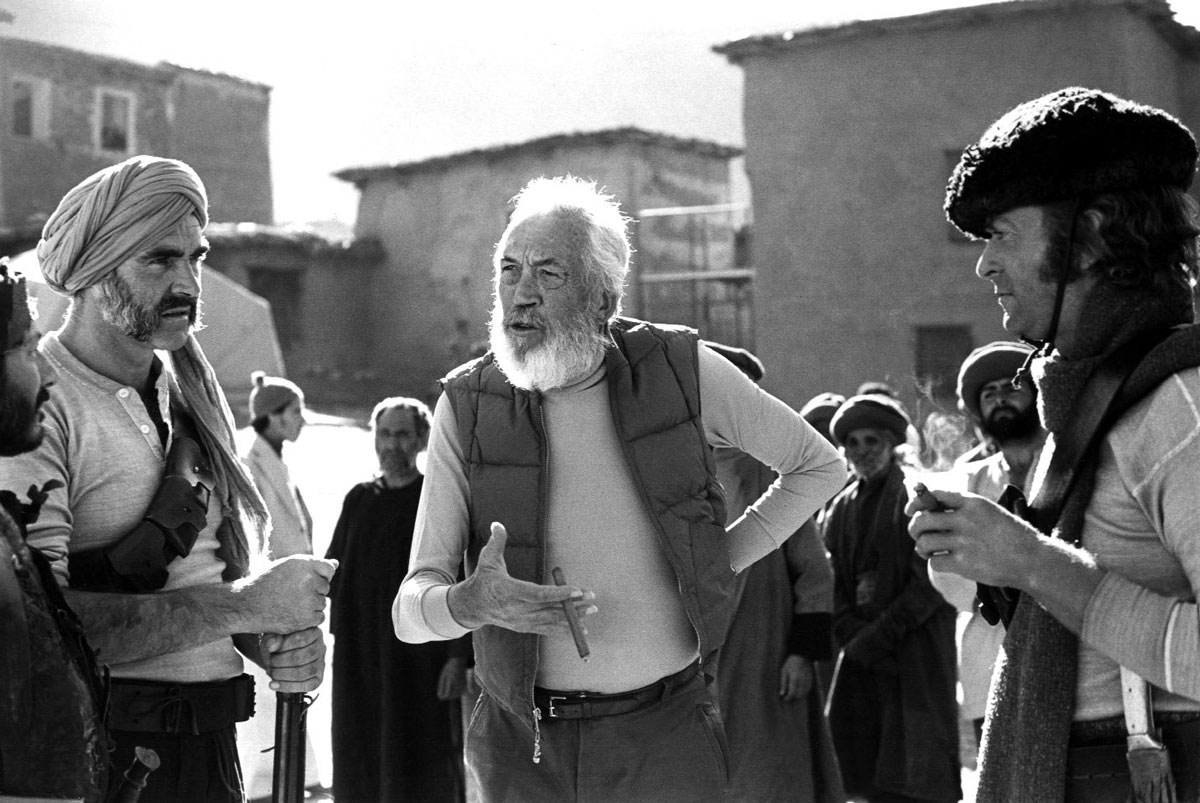
John Huston’s The Man Who Would Be King, based on the Rudyard Kipling short story, is an exhilaratingly farfetched adventure fantasy about two roughneck con men, Danny and Peachy (Sean Connery and Michael Caine), in Victoria’s India, who decide to conquer a barbarous land for themselves.
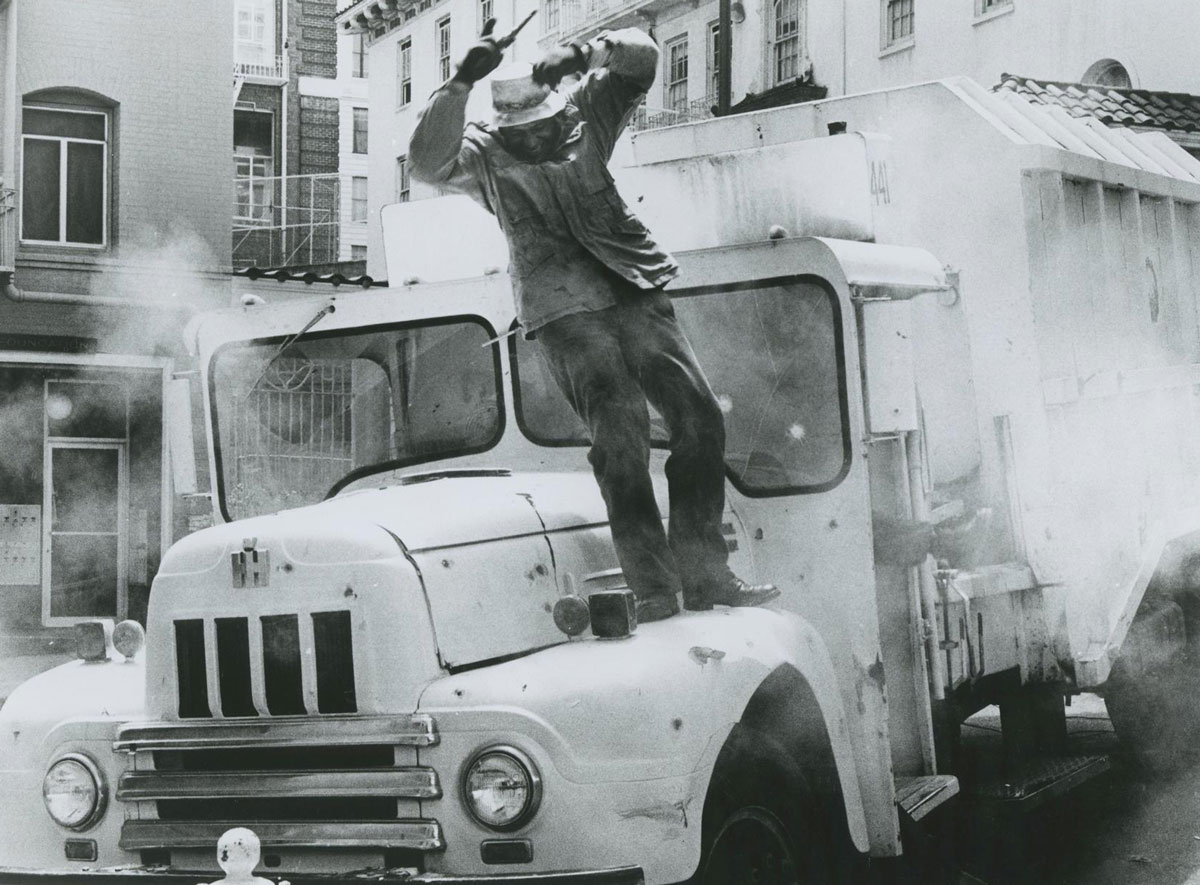
Peckinpah’s “The Killer Elite” is intensely, claustrophobically exciting, with combat scenes of martial-arts teams photographed in slow motion and then edited in such brief cuts that the fighting is nightmarishly concentrated—almost subliminal.
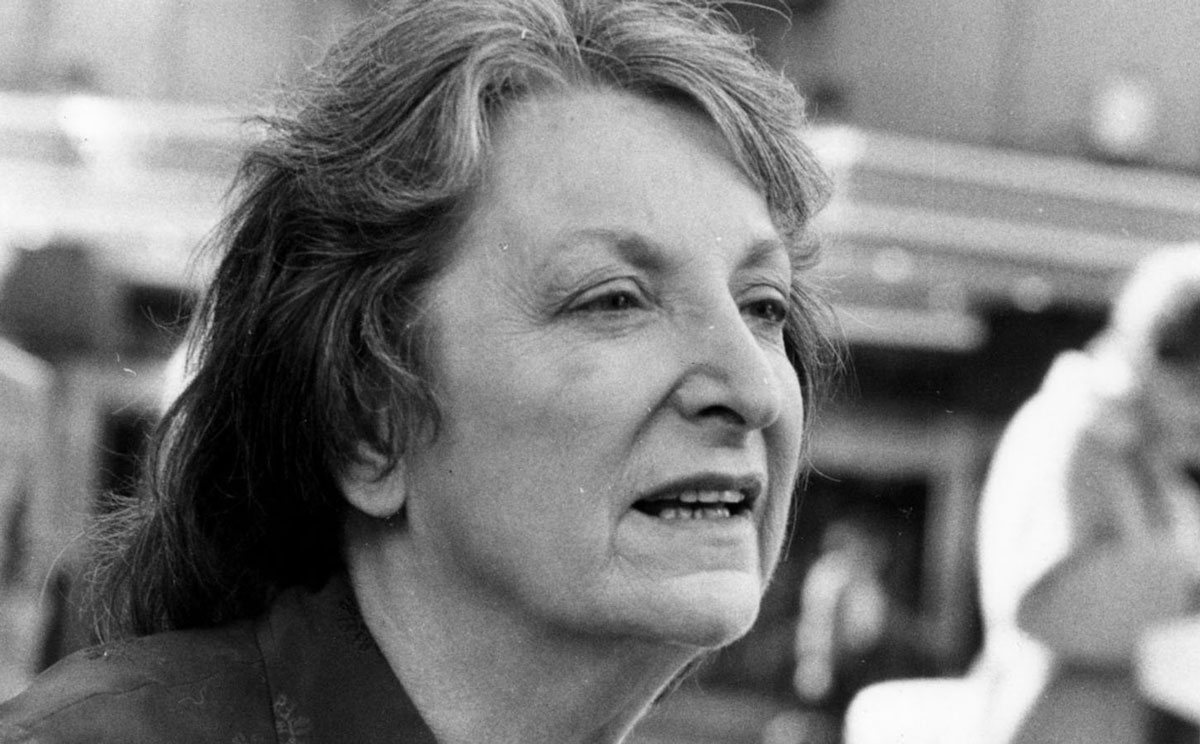
“Numbing the Audience” is an open attack on the coarsely manipulative tactics of the studios’ attempts to latch on to new viewers
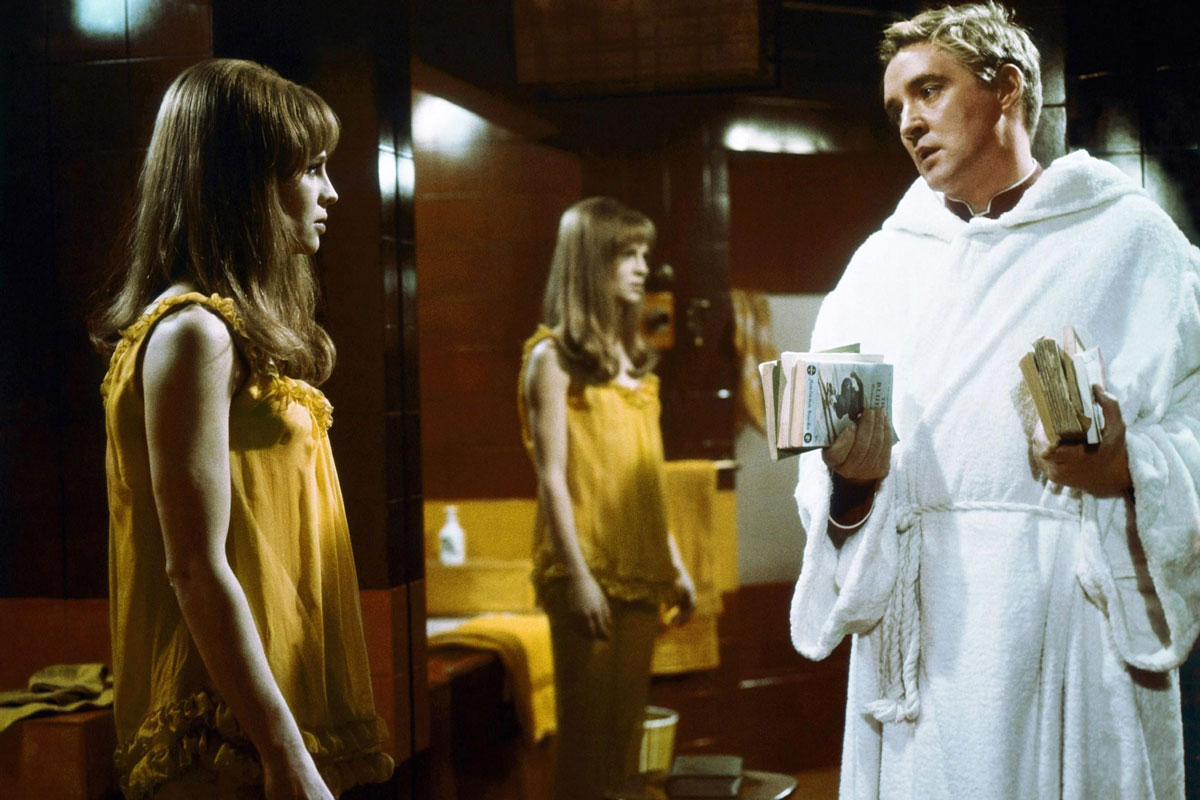
Bradbury’s idea of censorship lacks depth. But even worse is the on-screen depiction of the renegades’ solution to book burning—to have people “become” books. An issue intended to be serious becomes comic at the thought that people might devote their lives to some of the volumes shown burning on-screen.
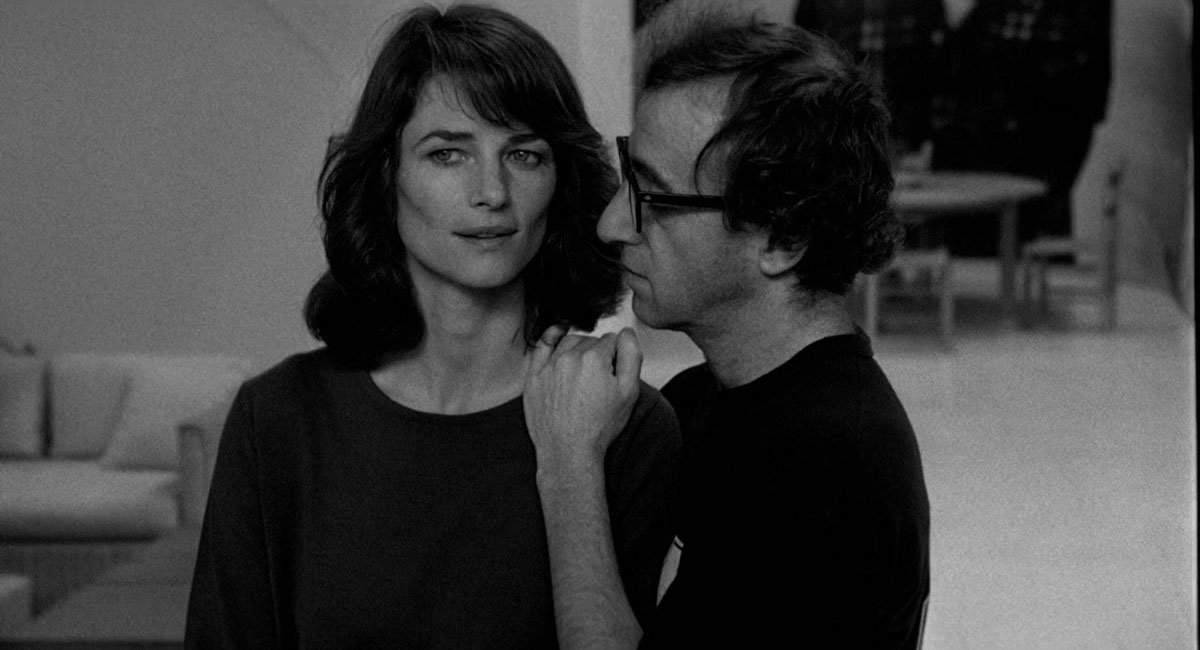
In Stardust Memories, we get more of the same thoughts over and over—it’s like watching a loop. The material is fractured and the scenes are very short, but there was not a single one that I was sorry to see end.
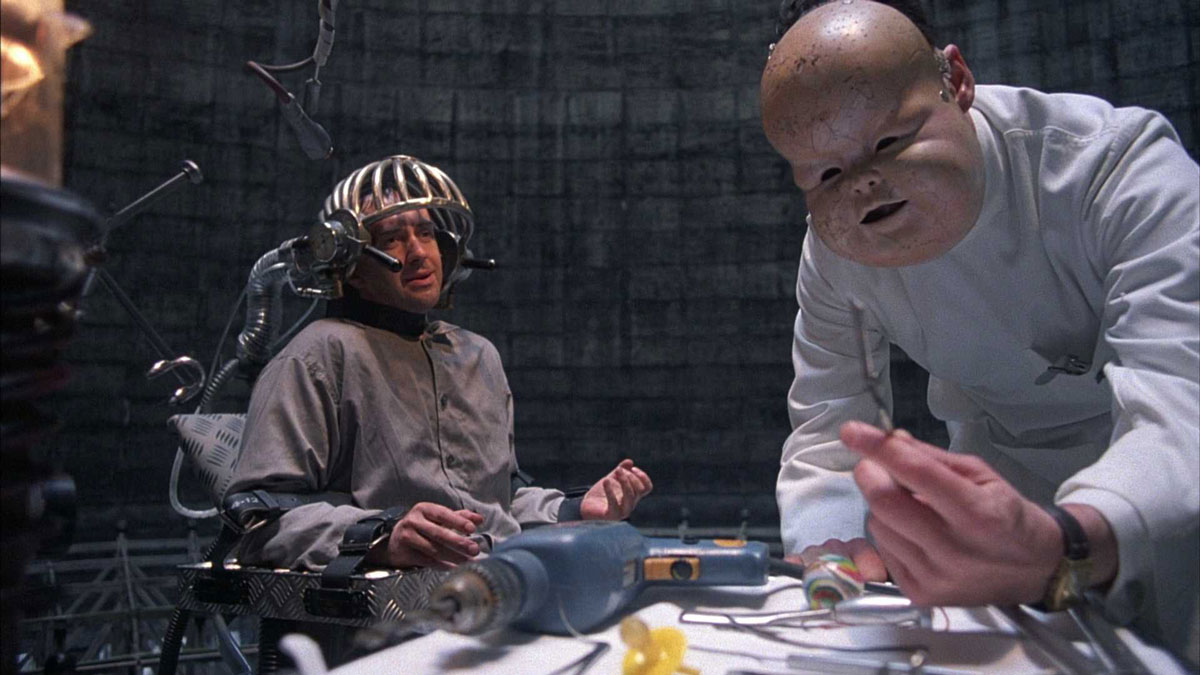
Brazil is the kind of ornery, intellectually fuzzy labor of love that is bound to strike some people as just about “the worst thing I’ve ever seen,” and perhaps it will affect others as a picture they want for their VCRs, so they can look at it over and over.
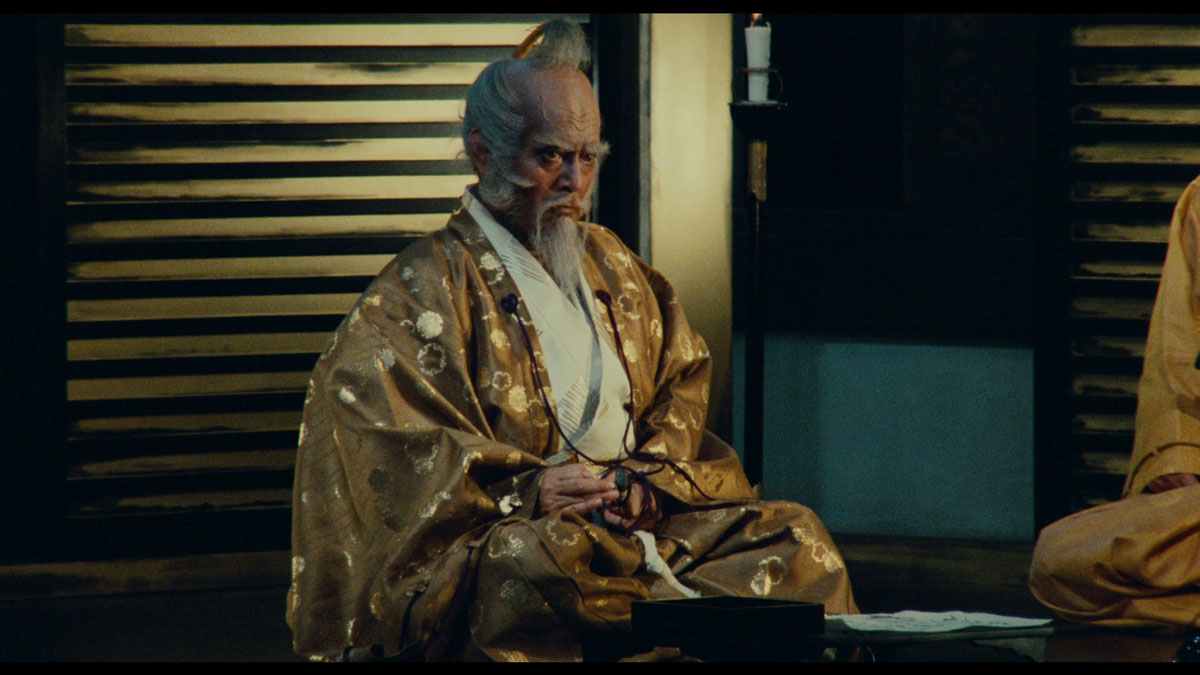
Essentially, Ran is about color and pattern, the formality and pageantry of warfare, and the fun of melodrama.
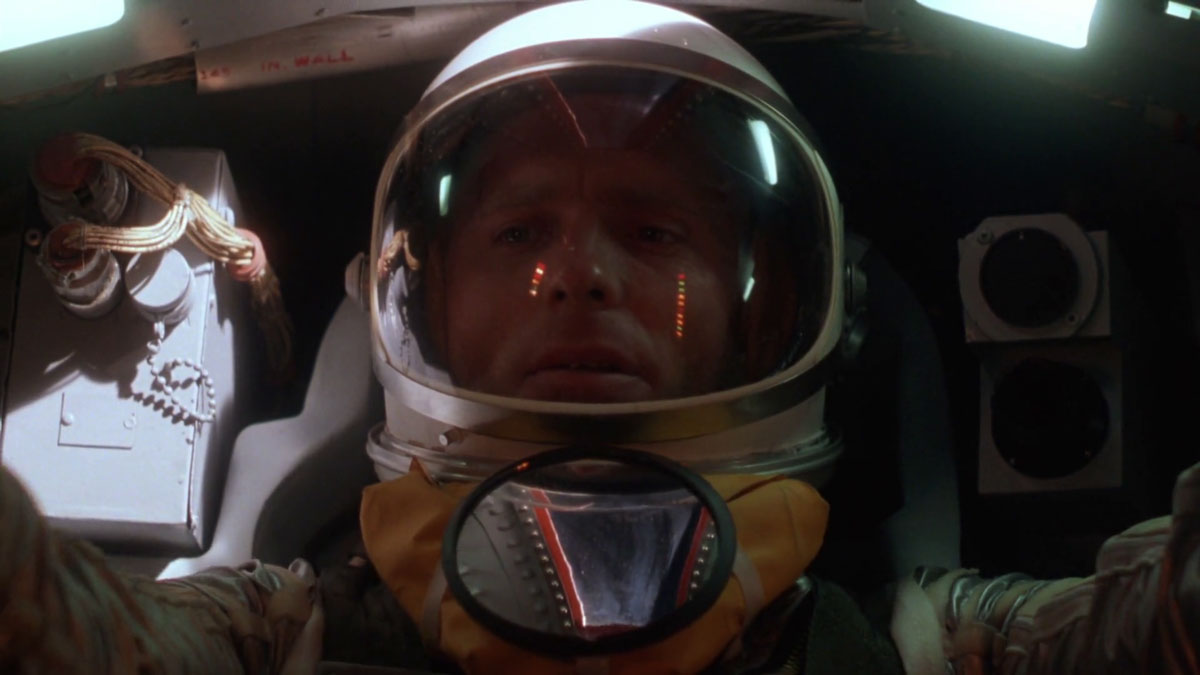
The Right Stuff has the happy, excited spirit of a fanfare, and it’s astonishingly entertaining, considering what a screw-up it is.
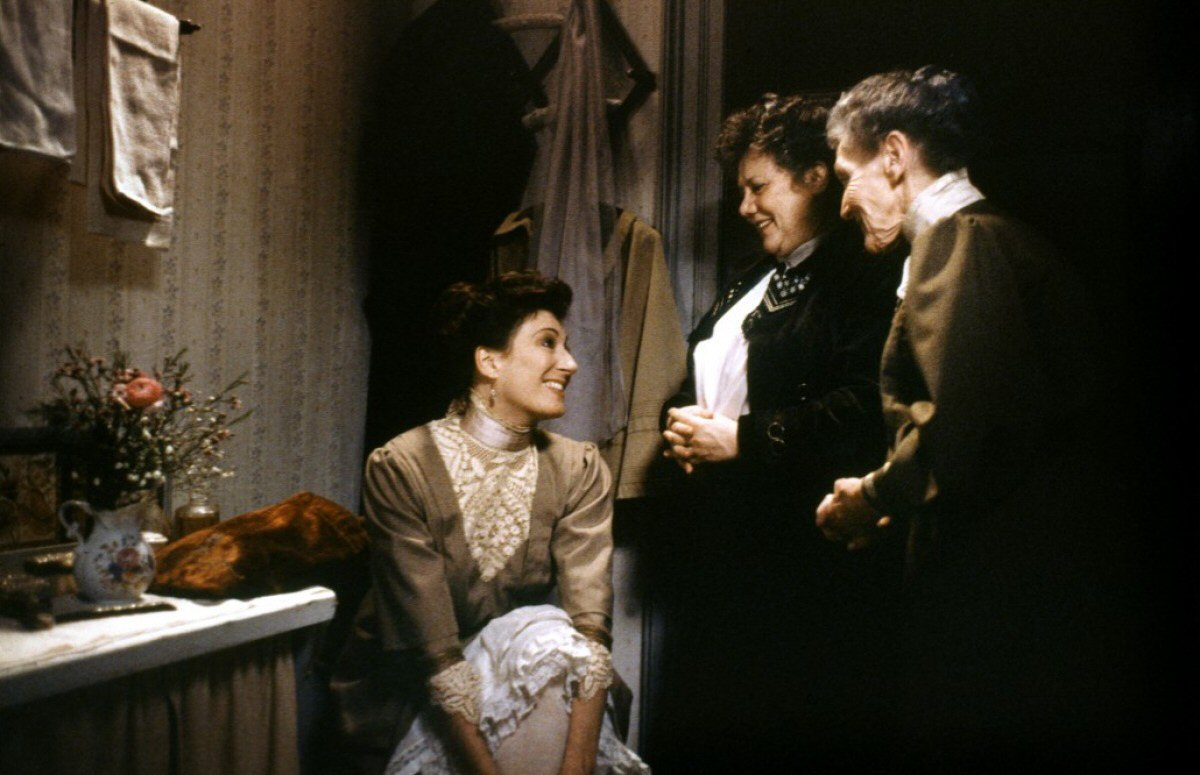
The movie is a demonstration of what, in Huston’s terms, movies can give you that print can’t: primarily, the glory of performers—performers with faces that have been written on by time and skill, performers with voices.

Pauline Kael has brought the same fierce passion, independence, and incisiveness to her movie reviews since she took on Charlie Chaplin’s Limelight in 1952. When her first book, I Lost It at the Movies (1965), and her 1968 appointment as a movie critic for The New Yorker brought her national prominence, some people raised eyebrows, others glasses, to her revolutionary style.

Pauline Kael is a singular voice in the history of American film criticism. Cineaste interviewed Kael in the summer of 1999, discussing her critical career and early influences, her philosophy of criticism, great American films of the Seventies, her thoughts about retirement, and her provocative views on some recent American movies.
When I discovered that Pretty Poison had opened without advance publicity or screenings, I rushed to see it, because a movie that makes the movie companies so nervous they’re afraid to show it to the critics stands an awfully good chance of being an interesting movie. Mediocrity and stupidity certainly don’t scare them; talent does.
Only the title of Jean-Luc Godard’s new film is casual and innocent; Weekend is the most powerful mystical movie since The Seventh Seal and Fires on the Plain and passages of Kurosawa. We are hardly aware of the magnitude of the author-director’s conception until after we are caught up in the comedy of horror, which keeps going further and becoming more nearly inescapable, like Journey to the End of the Night.
Jean-Luc Godard’s “La Chinoise” is a satire of new political youth, but a satire from within, based on observation, and a satire that loves its targets more than it loves anything else — that, perhaps, can see beauty and hope only in its targets.

There is so much talk now about the art of the film that we may be in danger of forgetting that most of the movies we enjoy are not works of art.
Get the best articles once a week directly to your inbox!